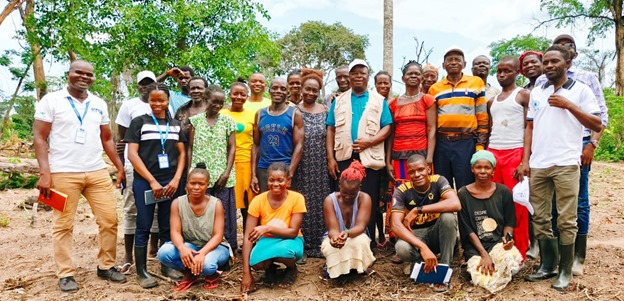Western Equatoria State on Sunday launched its first planting season of 2025, renewing its ambition to reclaim its legacy as South Sudan’s breadbasket.
The launch in Gangura Payam of Yambio County was organized by the State Ministry of Agriculture, Forestry, and Environment in collaboration with the Star Trust Organization (STO).
The event drew farmers, cooperatives and development partners—all united by a common vision to restore Western Equatoria State’s agricultural dominance.
State Agriculture Minister Alison Barnaba urged residents to maximize the potential of the fertile soils for food production.
“Western Equatoria once fed this nation. It can do it again,” Barnaba said.
“Our farmers must rise and make this land productive,” he added.
The minister recalled the state’s agricultural achievements, particularly Nzara County’s commercial farming, and advocated for the revival of perennial crops like coffee, teak and lemon—once the backbone of the local economy.
Among the leading forces in this year’s farming season is the Maperegizo Farmers’ Cooperative, which has cultivated more than 80 feddans of groundnuts and maize. However, infrastructure gaps remain a challenge.
Joel Binza, the STO representative overseeing the Smallholder Agriculture Market Support (SAMS) project, emphasized the importance of investing in rural infrastructure and connecting farmers to markets.
“We don’t wait for free handouts—we work hard. But we need better roads and stronger market access to succeed,” Binza said.
He reaffirmed STO’s commitment to equipping farmers with skills in poultry farming, beekeeping and cooperative development.
“We are not just building skills—we are building sustainable livelihoods,” he said. “Our goal is to empower farmers and link them to real, long-term opportunities.”
Francis Francisco, Yambio County’s Relief and Rehabilitation Commission (RRC) coordinator, echoed the call for joint efforts between the government, development partners and local communities.
“We must work together. Farmers need support, and the environment needs protection,” he said.
“Discouraging deforestation is key, as trees help regulate climate, prevent soil erosion and sustain agriculture,” he added.
“Food is peace. Food is wealth,” Minister Barnaba said, adding that a stronger Western Equatoria means a food-secure South Sudan.




